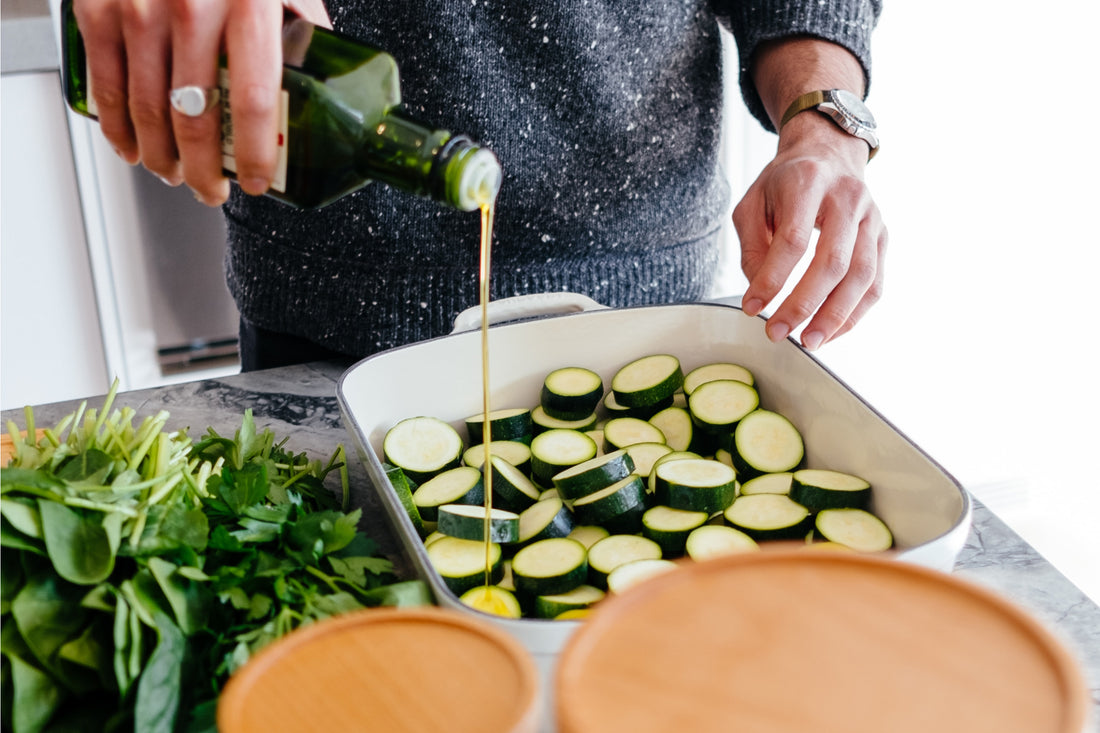Si desea canalizar el poder de las hierbas en su vida cotidiana, las tinturas de hierbas son sus nuevos mejores amigos. Estos líquidos altamente concentrados aprovechan la capacidad curativa de las hierbas para ayudar con las dolencias de salud, mejorar su estado de ánimo y agregar un poco de alegría adicional a su vida. También facilitan la absorción rápida de las hierbas en su sistema cuando busca curarse con urgencia.
Las tinturas se elaboran con ingredientes naturales como flores, hojas, corteza de árboles o bayas extraídas con alcohol. (Algunas tinturas se elaboran con glicerina vegetal o vinagre de sidra de manzana, según las hierbas involucradas, pero el alcohol es el disolvente más común). Las tinturas se toman por vía oral y, por lo general, se administran colocando unas gotas debajo de la lengua, lo que ayuda a que la solución ingrese al torrente sanguíneo rápidamente.

La gente lleva cientos de años elaborando tinturas y recurriendo a las hierbas para su bienestar. Si bien el proceso se reconoce desde hace generaciones, los beneficios físicos no son lo único que hace que las tinturas sean tan fascinantes. Muchos herbolarios y entusiastas afirman que aprender más sobre las tinturas y la curación natural ha cambiado su forma de relacionarse con el medio ambiente. Después de todo, no hay un recordatorio más claro de que estamos conectados con la naturaleza que encontrar ingredientes saludables en nuestros propios jardines.
Ingredientes de la tintura que debes conocer

En lo que respecta a qué tinturas pueden tener un impacto positivo en su vida, no hay límites. A continuación, se muestran algunas hierbas populares que puede intentar incorporar a su rutina:
Manzanilla: Favorece una piel sana y un buen sueño nocturno .
Menta: ayuda a la digestión, alivia los síntomas del resfriado y ayuda con la inflamación.
Romero: favorece la circulación, ayuda a reforzar el sistema inmunológico, ayuda a la desintoxicación y ayuda a aliviar el dolor de cabeza. El romero también puede ayudar a mejorar el estado de ánimo, aumentar la concentración y calmar la ansiedad.
Hinojo: calma el estómago y alivia la acidez estomacal. Si su médico le ha dado el visto bueno para usar tinturas durante la lactancia, el hinojo también puede ayudar a aumentar la producción de leche.
Jengibre: ayuda con el dolor de las articulaciones, calma las náuseas y el malestar estomacal, puede ayudar a reducir la inflamación y es un potente antioxidante.
Equinácea: una excelente opción cuando estás resfriado . También puede ayudar a reforzar el sistema inmunológico y aliviar la faringitis estreptocócica.
Salvia: conocida por sus propiedades antioxidantes, puede ayudar a combatir el colesterol, el dolor de garganta, los cólicos menstruales, el mal humor, los síntomas de la menopausia y la digestión.
Pétalos de rosa: ayudan a generar sentimientos positivos y románticos, ayudan a la digestión, ayudan a aliviar el dolor y pueden ayudar a aliviar los calambres menstruales.
Compre tinturas o hágalas usted mismo
Muchos herbolarios y empresas de bienestar venden tinturas de calidad elaboradas con cuidado. Sin embargo, si prefieres hacerlo tú mismo, puedes crear una tintura en tu propia cocina con bastante facilidad. Los métodos de preparación específicos pueden variar según los ingredientes de la tintura , pero, por lo general, todo lo que necesitas es la hierba elegida, un recipiente de vidrio que se cierre y alcohol de consumo. (O, si prefieres no usar alcohol, puedes abastecerte de glicerina vegetal o vinagre de sidra de manzana). La mayoría de las tinturas caseras requieren remojar las hierbas en el alcohol en un lugar fresco y seco durante varias semanas, ¡y luego ya estás listo! Tu tintura está lista para disfrutar. Puedes comprar tus hierbas o cultivarlas tú mismo en el alféizar de tu ventana o en tu jardín.
Las tinturas a base de alcohol pueden durar mucho tiempo, mientras que las tinturas elaboradas con glicerina vegetal o vinagre de sidra de manzana pueden necesitar refrigeración y caducan después de un cierto período de tiempo. Lo importante es recordar que las tinturas son concentradas y potentes. Es importante hablar con su médico antes de agregar una nueva hierba o tintura a su rutina y asegurarse de antemano de que no causará ninguna reacción a los medicamentos que esté tomando . También puede consultar a un médico holístico local si tiene alguna pregunta adicional.
Otra forma de explorar la herboristería
Hay muchas formas de aprovechar el poder de las hierbas, así que si las tinturas no son lo tuyo, no tengas miedo de probar otro método. Las infusiones de hierbas, los bitters, los suplementos y los ungüentos tienen sus propios beneficios. Se trata de encontrar lo que mejor te funcione y lo que más disfrutes. ¡Feliz curación!






